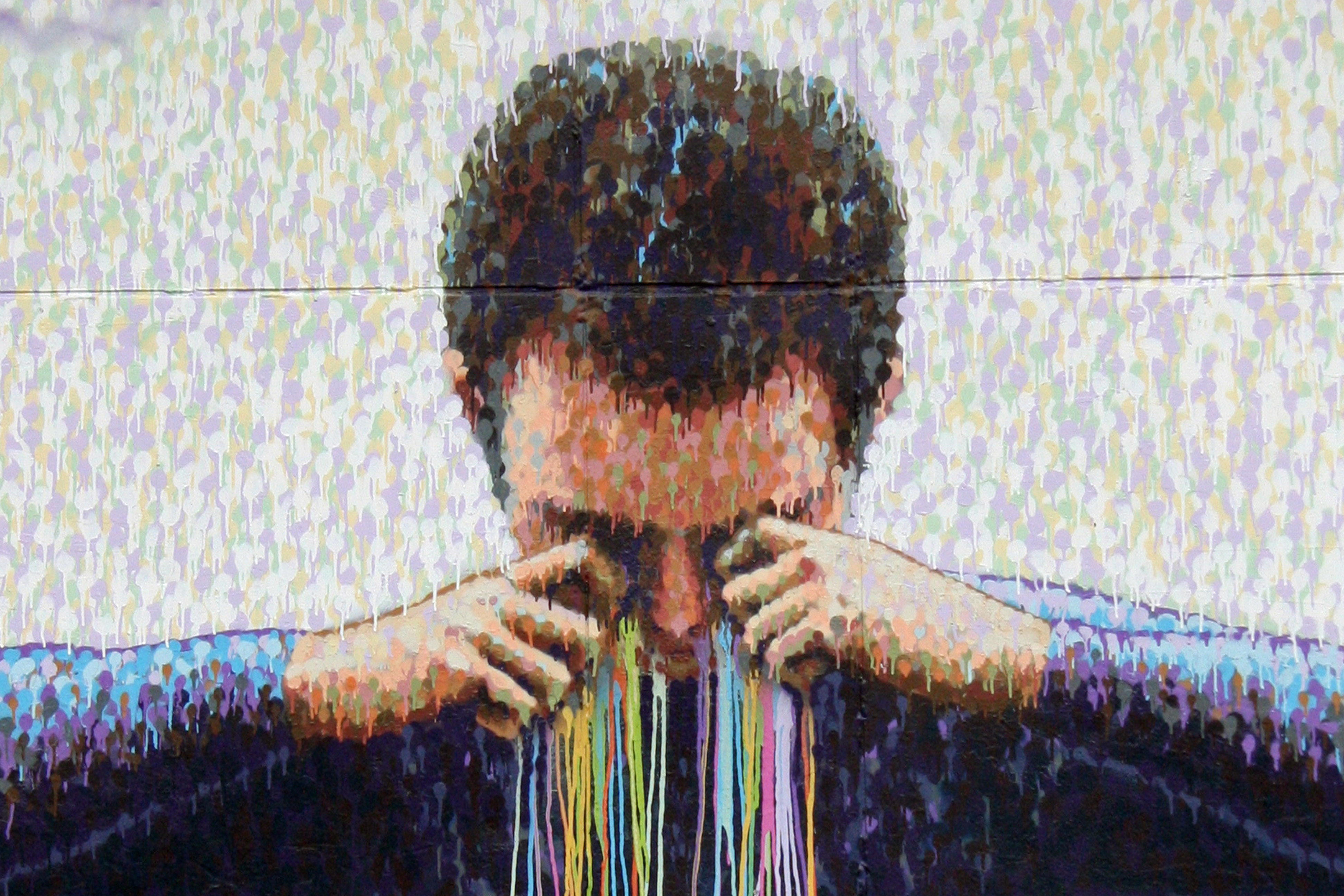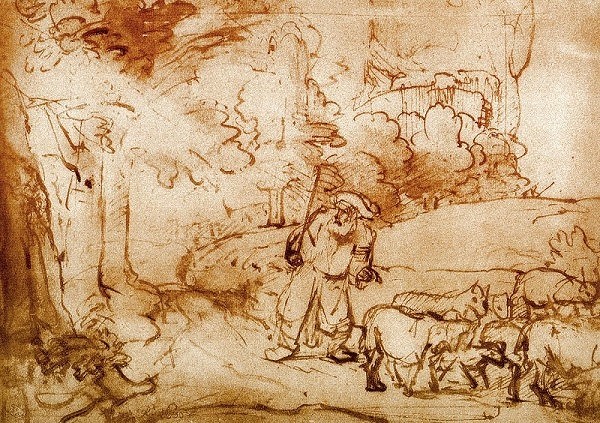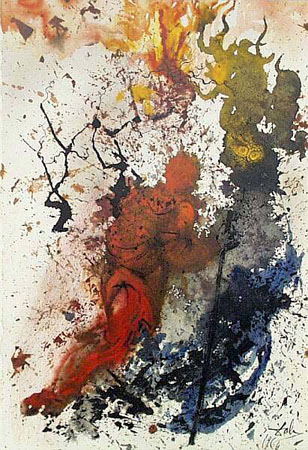Third of Lent: Exodus 20:1-17 and John 2:13-22
Image: YouTube still
The Prince of Egypt is a beautiful animation of an ancient story.
A story of the struggle for freedom in the face of power and oppression.
It’s an epic narrative which blends the emotional intensity of human relationships with the presence of God. There is awe and mystery and intimacy. A God speaking in fire and cloud and in a still small voice.
The film ends with the moment that God speaks in today’s reading from Exodus.
It ends with the giving of the Ten Commandments.
What makes for a cinematic finale is actually the beginning of a new phase of understanding God’s character and relationship with humanity, with us.
Here is a God who is loving and merciful. A God whose words demand a degree of courage and humility.
For God speaks words which redirect our hearts towards love; words which name the damage done when our hearts are ruled by selfish desires.
Moses Delivering His Ten Commandments by David Courlander.
The words that God speaks reminds the people of their story.
The Lord God brought them out of slavey and into freedom.
This God is the great I am: who was and is and is to come. There is no other.
The words that God speaks forms a people with identity and belonging and purpose.
The Lord God has given them a way to live. To turn away from that - to give other gods, idols, desires and prizes central place - would have repercussions on future generations.
To remain faithful to God’s ways would be a blessing of love to not just the third or forth generation, but the thousandth.
The Greyhound might be one of the few, if not the only, pub in north London with the ten commandments on the walls.
And yet perhaps those words which God spoke ought to be just at home convivial meeting place as in a place of worship.
These words:
Honouring God’s name and embracing the command to rest. The holiness of God blessing and setting aside and hallowing the rhythms of time.
Honouring one another: in family relationships, in preserving life and in faithfulness.
Honouring community: not stealing, speaking falsely or coveting that which belongs to another.
All these words, held within a covenant of love.
A covenant of love, which as it was lived out and interpreted, included provision for widow and orphan; which released those in debt; which acknowledged that the earth was the Lord’s.
Before the presence of God, and in the company of one another, God’s people are called to live in faithfulness to the commandments.
Jesus Cleanses The Temple by Jhoti Sati
What then are we to make of today’s episode from John’s Gospel? So soon after turning water into wine at the wedding feast, Jesus is overturning tables in the temple.
If God’s response to our failures to love it to keep on loving, perhaps we need to be alert to that fact that that’s not always comfortable; for the Lord comes to the Temple as a refiner’s fire.
Is this perhaps a form of holy disruption?
Does it reveal something new? Does this action draw us more deeply into the mystery of God’s ways of loving?
This story feels familiar to us - the other Gospels place the episode in the final week of Jesus’ life; but John sets it at the beginning.
Here, Jesus doesn’t talk about the Temple as a den of robbers; nor does he remind his hearers that it should be house of prayer for all nations.
Whilst not naming exploitation or exclusion, Jesus seems to be saying something about himself, as well as the Temple.
Amidst the noise and hubbub and habits of trade, the Temple’s purpose, as a place of intimate and awesome encounter with God, has been obscured.
Alexander Smirnov - The Cleansing of the Temple
In the midst of this whirlwind of disruption, the bystanders ask for a sign to explain this action; they want to debate it.
Jesus doesn’t given them a ‘sign’ or miracle; instead he gives them something more like a riddle.
“Destroy this temple”, he says, “and in three days I will raise it up.”
To take this literally sounds preposterous or outlandish.
The people don’t understand. John breaks the narrative wall to turn his gaze on us; to say to us, that Jesus is talking about his own body.
Here, at the beginning of his ministry, Jesus is making a bold statement about where God’s presence dwells.
Here, in flesh and blood, God is with us.
But what Jesus reveals about himself - and the natures of God is the depth of loving.
Stations of the Cross - Alice Sielle
He points us to this arrest, death and resurrection.
In this holy disruption in a holy place, Jesus overturns what we thought we could say about God’s presence with us.
The God who’d led a people from slavery to freedom is leading us from death to life.
The God whose commandments call us to faithfulness, rest, honour and obedience doesn’t stop loving when we make mistakes.
Instead, this God remains steadfast; dwells with us in Jesus; and through him loves and heals and forgives.
This God puts out all our misdeeds; and makes us a clean heart.
In Jesus, we are not cast away from God’d presence; in him the covenant of love is extended.
This God calls us back from sin, selfishness, misdirected desire: and says:
If ye love me - keep my commandments. This God promises to renew us with his Spirit.
© Julie Gittoes 2021






.jpg)














